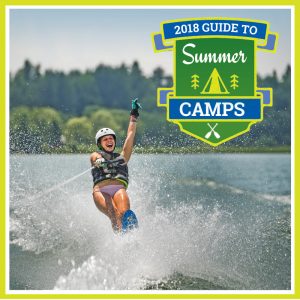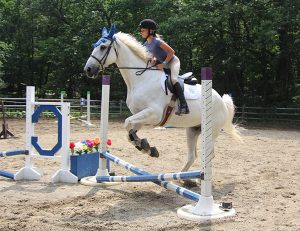 Maine camp director and owner Sarah Seaward can tell you that there’s a camp out there for every child.
Maine camp director and owner Sarah Seaward can tell you that there’s a camp out there for every child.
For decades, Seaward has been at the helm of Camp Nashoba North on Crescent Lake in Raymond. Her advice for families seeking a summer camp: Do your research, and listen to your child.
Finding a camp is like choosing a school, Seaward said. Kids benefit most from a camp they can grow with. And when kids and parents compare notes and decide together, she said, there’s the best chance for success.
Technology has changed camp research, said Catriona Sangster, director of girls’ Camp Wawenock in Raymond. Sangster is president of Maine Summer Camps, a membership organization supporting more than 100 Maine camps.
Parents turn to websites for their first exposure to camps, and benefit from search tools such as the “camp-matching” feature offered by the Maine Summer Camps website (mainecamps.org). These days, parents often initially forgo face-to-face meetings with camp personnel, she said.
But personal contact with camp directors – in-person, or Skyped – can have huge benefits, Sangster said. Parents can ask about a camp’s philosophy, programming and facilities.
After initial research, Sangster said, parents should determine if they “see eye-to-eye” with camp leadership. “It’s different for every person,” she said.
“Nothing beats that conversation you have with part of a leadership team to see if your philosophies align,” Sangster added.
Thomas Doherty, executive director of Scarborough’s Camp Ketcha, a day camp serving kids as young as age 3, said parents first need to be sure a camp is licensed and accredited. And he welcomes conversations.
“What I really enjoy is when parents call and ask hard questions,” Doherty said. “You should darn well be asking hard questions.”
In some respects, finding the right camp is like choosing a therapist, Doherty said. Parents should give weight to gut instincts. “The last thing you should be doing is sitting at your desk at work wondering if your child is having a good time.”
Camps have various ways of informing families about programs, Doherty said, such as open houses, camp tours, and camp fairs. Fairs are a great way to research camps, said Seaward, because they offer face-to-face contact with personnel, and exposure to information about specific programming and philosophy.
Comments are no longer available on this story